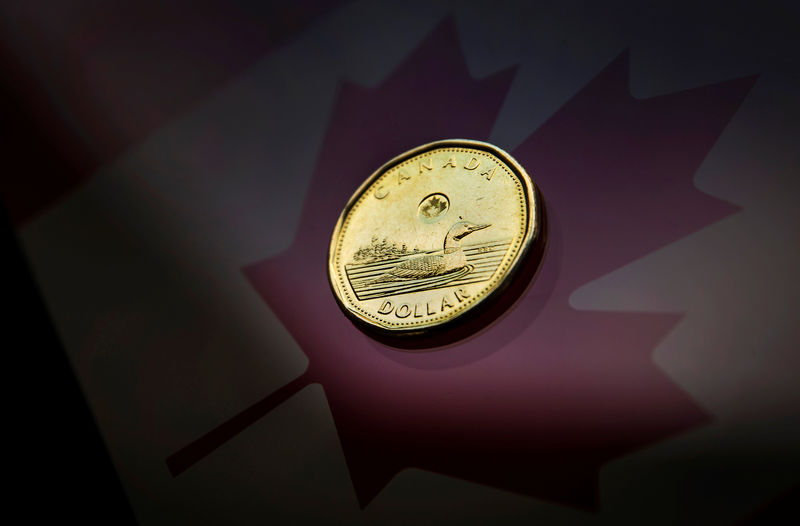By Fergal Smith
TORONTO (Reuters) - The Canadian dollar is likely to strengthen less against its U.S. counterpart over the coming year than previously expected, because of more attractive valuations and better prospects for return in other currencies, a Reuters poll showed.
The poll of nearly 40 currency analysts expects the loonie to reach 1.34 per U.S. dollar, or 74.63 U.S. cents, in three months, little changed from where it was trading on Wednesday. It is then expected to climb 2.3% to 1.31 in 12 months, weaker than the 1.30 projection in the May survey.
"The Canadian story is just not one where it offers a lot of appeal in the FX market," said Mark McCormick (NYSE:MKC), head of FX strategy at TD Securities.
Should the U.S. dollar weaken over the coming year, other major currencies, such as the Japanese yen and the euro, are cheaper, while emerging market currencies offer higher real interest rates with better prospects for growth, McCormick said.
The Bank of Canada's benchmark interest rate, which was last raised in October, sits at 1.75%, below the country's 2% rate of inflation.
The central bank has projected a slowdown in Canadian economic growth to 1.2% this year from 1.8% in 2018 because of low oil prices, a slowdown in the housing market and global trade tensions.
Still, data showing a record level of job gains in April has supported the bank's view that the slowdown in the economy will be temporary.
"Recent Canadian developments have been relatively positive, or at least not as negative as some maybe feared," said Erik Nelson, a currency strategist, at Wells Fargo (NYSE:WFC). "So I would suspect the Bank of Canada is on hold. It might even hike again next year as our current forecast implies."
The Bank of Canada is probably done raising interest rates until at least the end of next year, a Reuters poll last month showed.
The loonie lost ground in May for the fourth straight month, but it has still advanced 1.8% since the start of 2019, which is the best performance among G10 currencies.
This week, investors have worried about U.S. President Donald Trump's threat to impose tariffs on Mexico, one of three countries in a new North American trade deal. But Mexico and Canada have said they would proceed with plans to ratify the United States-Mexico-Canada Agreement (USMCA).
"I suspect if the U.S. backs down on Mexico, the USMCA can actually get through, potentially this year, which would definitely be Canadian dollar-positive," Nelson said.
Canada sends about 75% of its exports to the United States.
